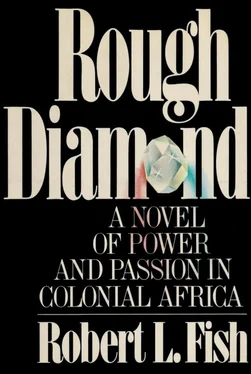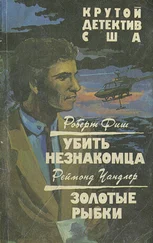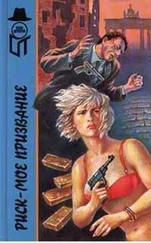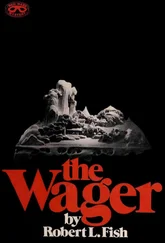“These men,” he said, his tone almost contemptuous, “combined to plan the overthrow of the Government of the Republic of the Transvaal. They freely admit they planned the deed; I have no doubt they even bragged about it among themselves, or at least before they were arrested. They could scarcely do less than admit their guilt, since we are in possession of a letter signed by the four in the dock, found in the possession of a certain Lieutenant White in his dispatch case when the so-called raid of Captain Jameson and his troopers met its deserved end at the twin kopjes of Doornkop outside of Krugersdorp. We consider these four men, therefore, guilty of high treason and ask that they be sentenced accordingly.”
He swung about, facing the other defendants crowded on the benches between Judge Gregorowski and the spectators. Several of the defendants yawned openly. They did not understand a word of Afrikaans and they only wished the wordy bastard would get on with whatever he was trying to say so they could pay whatever fines were going to be imposed and then go home. Fun was fun, but they had wasted enough time in the stinking Pretoria prison, and it was time to get the affair over and done with and get back to work. The prosecutor’s voice became even more contemptuous.
“These other men, these sixty, we simply consider lackeys, fools — dangerous fools who sadly need a lesson, parlous fools had their plan worked, but fools. Dupes. Look at them, Your Honor. They live in our country. Most of them have become prosperous, even wealthy in our country. And yet they planned to overthrow a government that has permitted them the freedom to take the gold from our ground, given them the freedom to build themselves large enterprises, to own huge tracts of land, to exploit our country in every conceivable way, to rob us of our riches, to be more precise. But the State is merciful and does not charge them with high treason. The charge we bring against them, however, is still a serious one. The charge is the distribution of arms, which is proscribed for Uitlanders in our republic. We shall now proceed to prove these charges, Your Honor, although the defendants, both those on the benches before Your Honor and those in the dock, have freely admitted their guilt through their lawyers. They have also agreed not to press any defense but to abide by the decision of this court. We leave to the judgment of Your Honor the punishment for the fools before you, but for the four in the dock, the State requests — nay, demands — the sentence of—”
There was deathly quiet in the large room; people leaned forward on their benches, heat forgotten. Barney’s one fist was clenched tightly; his other hand was squeezing Fay’s hand painfully, but she said nothing. Even the defendants who did not understand the Afrikaans language were suddenly aware that the prosecutor had said something, or was about to say something, of importance. The words came out, flatly, solemnly.
“— hangen by den nek—”
There was a startled gasp from all the defendants as well as from most of the spectators, although there were also some satisfied smiles from others; these words were easily understood whether one spoke the language or not. Angry glares and mutterings broke out among the defendants. It was not possible! A deal had been made, a promise had been broken! Barney stared in bitter anger at the prosecutor, although he knew his fury should have been directed against Lionel Phillips and the idiot lawyers who thought they could make a deal with Paul Kruger after trying to throw him out of his own country. The prosecutor was continuing.
“Your Honor, to begin I should like to present in evidence the letter which these four men in the dock signed, and which was used by Captain Leander Starr Jameson as the excuse for his criminal — and deservedly ill-fated — invasion of the Transvaal territory…”
The following day it was the turn of the defense lawyers, but it was a lost cause and they acted as if they knew it. Barney, listening to them, wondered how anyone that stupid could end up with a university degree and be taken seriously in his profession. The lawyers did their best to undo the damage of their having advised their clients to plead guilty, but their hesitant, stammering words and weak arguments plainly conceded defeat long before they were finished. To state before the court that a deal had supposedly been made with the prosecutor was manifestly impossible; in any case they were sure the only effect of such a statement would have been to make Judge Gregorowski even more intransigent, since he was bound to consider such a deal as being in direct defiance of the law and the authority of his court. And that would undoubtedly result in sentences even more severe. With a final plea for clemency, but with neither fact nor logic to support it, the ashen-faced lawyers sat down, unable to face their clients.
There were several moments of complete silence in the courtroom. Then Judge Gregorowski cleared his throat.
“If the ladies would please absent themselves from the court…”
It was an ominous sign. The wives of the defendants, many of whom did not even speak nor understand Afrikaans, looked about themselves wonderingly, but the movement of the other women in starting to make their way toward the aisles and then toward the rear of the room made the meaning of the judge’s words evident. Some of the women began to cry; other women comforted them as best they could. The warders, dressed all in funereal black, offered aid to the more stricken, while still urging them in the direction of the large doors leading from the room. Fay, with a final squeeze of Barney’s hand and a brave smile for him, made her way from the room with the others. The men remained, silent, waiting.
Judge Gregorowski waited until the warders had closed the doors on the last of the women; then he turned to face the large group of defendants, now standing, who crowded the space before him.
“You men have pleaded guilty to the charge of distributing arms in an attempt to overthrow the Transvaal Republic. It is therefore the sentence of this court that you each be fined the sum of two thousand pounds, that furthermore you each be imprisoned for a period of two years at hard labor, and that following your imprisonment you be banished forever from the Republic of the Transvaal.”
The men stared at him blankly, unable at first to comprehend what to them seemed the enormity of the sentence for such a minor crime. Distributing arms, for heaven’s sake! Who didn’t have arms among the Boers? Children had their own guns when they were seven! Besides, all they had been trying to do had been to assure themselves of their rights as citizens, as any right-thinking Englishman would have done. Besides, what about the deal that had been made? Certainly Gregorowski had to know about it. Why wasn’t he taking that into consideration? The thing had only been a prank, basically, and now they were being sent to serve two years at hard labor, and then banished from their homes afterward, for life? It wasn’t fair! It certainly wasn’t just!
The judge bit back a cruel smile of satisfaction at the perturbation he could see on the faces before him, the sentence by now having been translated in whispers to those who had not understood; then Gregorowski straightened his lips. He reached beneath the bench and brought forth a small square of black silk. He placed it on his bald head and turned to consider the four men facing him white-faced in the makeshift dock; the movement caused the silk to slip on the smooth skin of the judge’s head and only a quick fumbling movement on his part retrieved the cloth and kept it from falling. At any other time the gesture might have appeared comical, but there was no sign of a smile on any face in the room at that moment. The judge spoke, his voice harsh.
Читать дальше










